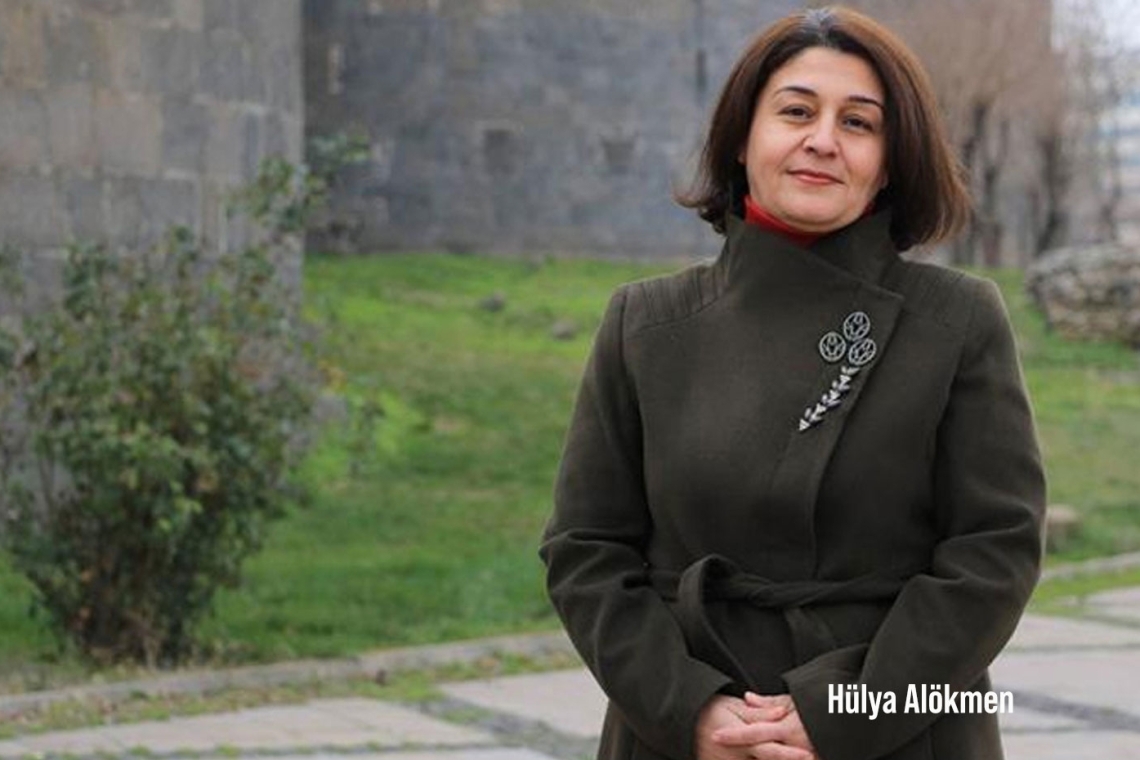By Deniz Tekin
The Supreme Court of Turkey has overturned the prison sentences of Hülya Alökmen and academic İrfan Açıkgöz, who were convicted for participating in press statements within the scope of union activities and activities of the Democratic Society Congress (DTK). The Court ruled that actions such as attending meetings and workshops organized by DTK, expressing thoughts and opinions, and participating in non-violent demonstrations and marches do not constitute sufficient evidence for the accusation of "membership in an organization."
This landmark decision by the Supreme Court, which affects hundreds of individuals including journalists, human rights defenders, academics, unionists, lawyers, doctors, mayors, and members of parliament, follows an earlier ruling that overturned the sentences of Şah İsmail Bedirhanoğlu and his wife, pharmacist Filiz Bedirhanoğlu, for attending DTK meetings since 2007. The local court's resistance to this decision led to the case being referred to the General Assembly of the Supreme Court’s Criminal Chambers.
Supreme Court: Mere sympathy not enough for organization membership
The Supreme Court's 3rd Criminal Chamber fundamentally overturned the sentence given to Hülya Alökmen, who was elected as co-mayor of Diyarbakır Metropolitan Municipality along with Selçuk Mızraklı in 2019 but did not receive her mandate due to being dismissed by a statutory decree (KHK). In its unanimous decision on December 12, 2023, the Supreme Court stated that to constitute the crime of armed organization membership, there must typically be an organic connection with the organization, involving continuous, varied, and intense activities. The Court emphasized that merely sympathizing with an organization, embracing its goals, values, ideology, reading or possessing its publications, or respecting its leader does not suffice for membership in an organization.
The Supreme Court acknowledged the "suspicion" that DTK was formed under the knowledge and instructions of the organization's management, stating, "There should be no doubt that those who take part in this structure and perform organizational activities with continuity, variety, and intensity will be punished as members of the organization." However, the Court pointed out that defendants with no evidence of connections or relationships with the organization could not be considered "members" based solely on their participation in DTK meetings and making non-criminal statements during the resolution process period of 2011-2013.
'Participation in DTK meetings as a speaker and expressing non-criminal thoughts is not a crime'
In its assessment regarding the sentence for "organization membership" given to Hülya Alökmen, the Supreme Court found, "It is understood that the defendant, being the co-chair of the HDP Diyarbakır Provincial Organization, participated in meetings between 2012 and 2013, served on various commissions, played a role in organizing workshops or conferences, and expressed certain non-criminal thoughts and ideas as a speaker or moderator. These actions, including participating in non-violent demonstrations and marches, are not sufficient to demonstrate membership in the hierarchical structure of the organization." The Supreme Court made the same assessment for the sentence given to İrfan Açıkgöz, a peace-signatory academic dismissed by a statutory decree.
The Supreme Court also cited other ongoing court cases and investigations against Alökmen and Açıkgöz as one of the reasons for overturning the verdict.
About the case
In the indictment, Hülya Alökmen was accused of "organization membership" for participating in events and activities organized by the Health and Social Service Workers' Union (SES) Diyarbakır Branch during her tenure as co-chair in 2012 and being a DTK delegate. Academic İrfan Açıkgöz was accused of attending DTK meetings and workshops, making speeches, and being a member of the Permanent Assembly. The Diyarbakır 9th High Criminal Court completed the trial on April 14, 2021, sentencing Alökmen to 10 years and 6 months and Açıkgöz to 6 years and 3 months in prison for "organization membership." The Diyarbakır Regional Court of Justice 9th Criminal Chamber reviewed their appeals and reduced Alökmen's sentence to 7 years and 6 months, citing insufficient evidence. Their lawyers appealed this decision, claiming it was against the law and procedure.



